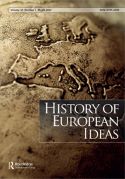Violence and power in the thought of Hannah Arendt
Violence and power in the thought of Hannah Arendt
- Jong-Won Lee
- Publication Date
September 2023 - Website
- View Publication Information
Hannah Arendt’s political thought is generally regarded as advocating nonviolence. Witnessing the rise of totalitarianism and its tragedy, she developed her political theory to recover the political in modern society. She claims that the genuine form of politics appears when people act together, deliberate, debate, and discuss, implying that her politics is inseparable from speech. She argues that when politics is practiced, power is generated. This thought is unique given that many political theorists regard power and violence as synonymous. Criticizing the tendency to identify power with violence, she reveals that they are opposites. Violence is a means of mobilizing physical forces that can suppress human actions and destroy power. In this respect, she was wary of the politics of sovereignty because it ‘necessarily and exclusively operates through the means of violence’ (142). This fundamental understanding of her ideas on action, freedom, politics, and power shaped the conventional belief that her political ideas supported nonviolence. Caroline Ashcroft’s book Violence and Power in the Thought of Hannah Arendt challenges the conventional belief that Arendt’s political thought advocates nonviolence.
 The College of Arts
The College of Arts